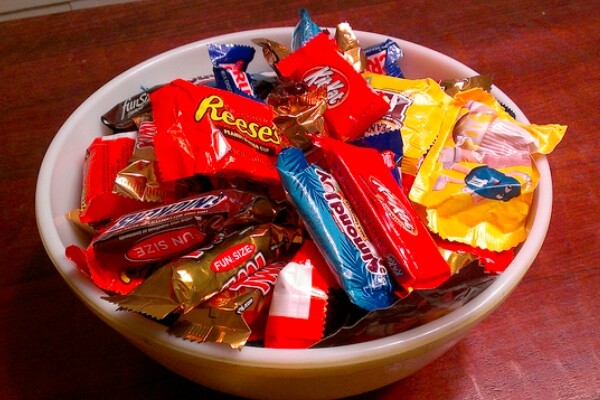They're Trying To Get You Addicted to Junk Food

Despite what Hollywood blockbusters would have you believe, bad guys in real life do not think they're actually all that bad. Out here in the real world, the most horrid evildoers, the ones that cause most of the world's damage, aren't doing so because they're terrible people bent on destroying us all. They're doing so for one reason and one reason alone: profit margins. Dangle the prize of a higher stock price, and there's nothing that stands in the way of most CEOs, be it legalities or environmental concerns or some kind of moral duty to not take advantage of their fellow man. But that's not how they see it.
That, at least was the prevalent thought running through my mind while reading this extraordinary, and super-long, piece over at the New York Times Magazine called "The Extraordinary Science of Addictive Junk Food." In it, author Michael Moss takes us behind closed doors of food corporations over the past few decades to look at their decision-making process when it comes to developing their products, specifically when they were most down on their luck and needed to inject some much-needed vigor into their bottom lines.
Of course, as comes with the territory for any behind-the-scenes investigative piece regarding Big Food, there's plenty of scare stats scattered throughout. Observe:
The company's Yoplait brand ... now had twice as much sugar per serving as General Mills' marshmallow cereal Lucky Charms.
A mere half-cup of Prego Traditional, for instance, has the equivalent of more than two teaspoons of sugar, as much as two-plus Oreo cookies.
[A] line of the trays [of Lunchables], appropriately called Maxed Out, was released that had as many as nine grams of saturated fat, or nearly an entire day's recommended maximum for kids, with up to two-thirds of the max for sodium and 13 teaspoons of sugar.
But that's become the norm for this kind of thing. Instead of the enormous amounts of addictive (and corrosive) sugar and salts that companies pump into their products simply to get their customers hooked -- which, of course, is the same tactic drug dealers use -- what's actually so shocking, yet telling, about the culture is the lack of remorse the people in charge feel. The main reasoning they have for doing what they do is one of, "This is what the people want, and if we don't give it to them, someone else will."
(This excuse, by the way, is neck-and-neck with the old classic blame-diffusing standard, "We were just following orders" in the category for most despicable.)
In other words, these company heads are saying that if they don't give their money to us, they'll just give it to someone else. Which makes sense if you're dealing with something like two hamburger stands, serving the same type of burger, on the same block. But these companies aren't doing that. They're heading into the laboratory to create patent-protected items to sell to customers that will get them addicted.
For example, take a gander at the epitome of food construction as detailed in the piece. Behold! The Cheeto:
He ticked off a dozen attributes of the Cheetos that make the brain say more. But the one he focused on most was the puff's uncanny ability to melt in the mouth. "It's called vanishing caloric density," Witherly said. "If something melts down quickly, your brain thinks that there's no calories in it ... you can just keep eating it forever."
That's not something that any company would have ended up creating on their own eventually, something that was waiting to be discovered by any corporation with enough expertise. That's something that Frito-Lay, specifically, paid its scientists massive amounts of money to develop, specifically to get consumers hooked. Not blaming them specifically for coming up with that piece of food tech would be like not giving credit to Robert Oppenheimer and company for creating the atom bomb.
Where it gets tricky is when you realize there's a whole lot of these food Oppenheimers working independently and at once. With the number of corporations in play, coming up with their varied stock of items, it's easy to see how they each believe this is all one large game of one-upmanship. If they don't figure out a way to pack in as much salt and sugar as cheaply as possible, they believe, someone else will. But that's wrong. That's simply the excuse bad people allow each other to use to make them all feel less evil. That's just what they say to let themselves sleep at night.